- Home
- Margaret Atwood
Moral Disorder Page 9
Moral Disorder Read online
Page 9
But I wasn’t without social resources. I didn’t take off my clothes and sing in public: I acted in acceptable ways. I smiled, nodded, made conversation, and so forth. I could do a good imitation of a competent young woman. I had a number of friends and acquaintances, both male and female, of the kind that might be accumulated in a life of such transience. They would come for meals, sitting around my card table, drinking bottles of a local wine that dyed the dishcloth red whenever I’d get around to cleaning up. I learned how to make lasagna, a substance that cost little and went far. I also served a thing known as nuts and bolts, made with several kinds of dry cereal mixed with peanuts and Worcester sauce and toasted in the oven. That was a hors d’oeuvre, not a dessert. I had not yet taken up baking, so for dessert there was ice cream, bought at the corner store and so full of seaweed that when it melted it didn’t turn to cream but to a gelatinous blobby substance that maintained its shape and was hard to wash down the drain.
One of the acquaintances who turned up to sit at my card table was a man called Owen. I didn’t know him very well. He would ring the doorbell unannounced – I did have a doorbell – and I would go down the steep staircase and let him in. I might feed him some leftover lasagna, if I had any, or else some nuts and bolts. Then he would sit for long periods, not saying anything, as we both watched the long, lingering northwest summer sunsets turn from peach to pink to dark pink to the dull glowing red of a blown-out match.
Owen wasn’t a lover or even a potential lover: nothing like that. He was in the city temporarily, like me, and had been loaded onto me by a do-gooder mutual connection (concerned, I now suppose, with his state of mind). He was alone, far more alone – I could see – than I myself had ever been. He had a desolation about him that I couldn’t account for: sitting at my card table in the dusk was about the closest he could get to being with anyone.
Why did he keep dropping by? His presence was an enigma. He certainly wasn’t bent on courtship. Neither did he want friendship. He wasn’t demanding anything from me, but he didn’t seem to be offering anything either. If I’d had a more lurid imagination – or if my lurid imagination was of the kind that attached itself to anything in the real world – I might have been afraid of him. I might have pegged him as a potential murderer. But I never made that sort of connection.
Despite the entire nullity of these evenings, it was hard to get Owen to leave. He would sit and sit, barely moving, inert, like a bundle of cloth, though topped with a head that was nevertheless alive, because the eyes moved. It was as if he’d been paralyzed in some appalling accident that had left no outward scars. His muteness was more exhausting than any conversation might have been.
I didn’t want to say “I’m tired, I’m going to bed now.” It seemed indelicate. Subtler hints were lost on him, but he wasn’t a person I could be blunt with. I couldn’t just say “Go home,” as if to a dog. Somehow it would have been cruel. (Where was his home, anyway? Did he even have such a thing?) Eventually, when some inner timer had gone off in him, he’d get to his feet, thank me awkwardly for the lasagna, and trundle off down the stairs.
Finally one evening he told me that his three older brothers had tried to kill him when they were all children. Telling him it was a game, they’d shut him up inside a disused icebox and run away. Luckily their mother had noticed he was missing, and had tracked him down and let him out, just in time: he was already gasping and turning blue in the face. Probably his brothers hadn’t meant to kill him, he said. They couldn’t really have known what they were doing.
Owen related this episode in a flat voice, looking not at me but out the window at the dimming redness of the sunset. I was so thoroughly taken by surprise that I could not immediately think of anything to say. No wonder he was the way he was, I thought: what effect would a thing like that have on a person’s life? To find yourself at an early age in a universe that had demonstrated such hostility would have a dampening effect. More than dampening: crushing. Could Owen be balancing on the edge of suicide? He’d said nothing about it, but people didn’t always, or so I’d heard.
I felt I should respond in some emphatic way, declare a firm position, reach out a helping hand. My eventual murmur of “That’s terrible” didn’t seem nearly enough. Worse: I had a shameful desire to laugh, because the thing was so grotesque, as near-tragedies often are. Surely I lacked empathy, or even simple kindness.
Owen must have felt so too, because after that evening he never came back. Or possibly he’d done what he’d wanted to do: dropped off his anguish, left it with me like a package, in the mistaken belief that I would know what to do with it.
That image – of a little child being suffocated, or almost suffocated, by others who thought the whole thing was a game – melded with the furtive nocturnal slugs, and my solitary pacing and singing, and the separate, claustrophobic stairway, and the charmless abstract painting, and the gold-framed mirror, and the slithery green satin bedspread, and became inseparable from them. It wasn’t a cheerful composite. As a memory, it is more like a fog bank than a sun lit meadow.
Yet I think of that period as having been a happy time in my life.
Happy is the wrong word. Important.
That was all quite long ago. I see it in retrospect, indulgently, from the point I’ve reached now. But how else could I see it? We can’t really travel to the past, no matter how we try. If we do, it’s as tourists.
I moved out of that city, and then into another one, and then another. I had a lot of moves still ahead of me. Yet things did work out after all. I met Tig, and then followed the cats and dogs and children, and the baking, and even the frilly white window curtains, though they eventually vanished in their turn: they got dirty too quickly, I discovered, and were hard to take down and put back up.
I didn’t become any of the things I’d feared. I didn’t get the pimply bum I’d been threatening myself with, nor did I become a cast-out, wandering orphan. I’ve lived in the same house now for decades.
But my dreaming self refuses to be consoled. It continues to wander, aimless, homeless, alone. It cannot be convinced of its safety by any evidence drawn from my waking life. I know this because I continue to have the same dream, over and over.
I’m in the other place, a place that’s very familiar to me, although I’ve never lived in it or even seen it except in this dream. Details vary – the space has many different rooms, mostly bare of furniture, some with only the sub-flooring – but it always contains the steep, narrow stairway of that distant apartment. Somewhere in it, I know – as I open door after door, walk through corridor after corridor – I’ll come upon the gold mirror, and also the green satin bedspread, which has taken on a life of its own and is able to morph into cushions, or sofas, or armchairs, or even – once – a hammock.
It’s always dusk, in this place; it’s always a cool dank summer evening. This is where I’ll have to live, I think in the dream. I’ll have to be all by myself, forever. I’ve missed the life that was supposed to be mine. I’ve shut myself off from it. I don’t love anyone. Somewhere, in one of the rooms I haven’t yet entered, a small child is imprisoned. It isn’t crying or wailing, it stays completely silent, but I can feel its presence there.
Then I wake up, and retrace the steps of my dream, and try to shake off the sad feeling it’s left me with. Oh yes, the other place, I say to myself. That again. There was quite a lot of space in it, this time. It wasn’t so bad.
I know the green bedspread isn’t really a bedspread: I know it’s some aspect of myself, some old insecurity or fear. I know the unseen child in the dream isn’t my almost-murdered acquaintance, but only a psychic fragment, a tatter of my own archaic infant self. Such daylight knowledge is all very well. Still, why do I keep on having this dream? Maybe it served a purpose once, but I ought to be done with it by now.
Then I get up, and ask Tig how he slept, and we have toast and coffee together, and go about doing the many mundane and practical things there are to be done.
The dream frightens me, though. It brings with it a nebulous dread. What if it’s not in the past, this other place? What if it’s still in the future? After all?
Monopoly
Nell and Tig ran away to the country. Or as Nell told it later, Tig ran away to the country and after a while Nell joined him there. It was not a foregone conclusion. It could have turned out differently. Nell had been of two minds about going. She’d foreseen the difficulties. She’d had other choices. That was her story, one she came to believe as time went by and positions hardened.
In reality she hadn’t foreseen any difficulties. She’d been sleepwalking. She’d been in love, a state of being she thought of as wiping the mind clean of any of the soothsaying abilities or even ordinary common sense it might otherwise have had. Moving to the country with Tig had been like jumping out of a plane, trusting that the parachute will open. And it must have been the right thing to do because Nell didn’t end up lying smashed on the ground, and anyway here they are, here they both still are, after all these years. Once a certain amount of time has passed you can look back, you can laugh about things, she would say.
That was her other story, her second story; it played alternately with the first, like an old double bill at the movies.
Moreover, Tig didn’t exactly run away. He ambled away. It was a slowed-down, freeze-framed movement, like a solitary Chinese person doing Tai Chi on a lawn. As any bank robber can tell you (Nell would say), the best thing to do when running away is not to run. Just walk. Just stroll. A combination of ease and purposefulness is desirable. Then no one will notice you’re running. In addition to which, don’t carry heavy suitcases, or canvas bags full of money, or packsacks with body parts in them. Leave everything behind you except what’s in your pockets. Lightest is best.
Tig rented a farm, or what used to be a farm. The rent wasn’t much: the man who owned it wasn’t any sort of a farmer. He was a businessman – it was unclear what the business was – who hadn’t decided whether he would turn the property into a weekend place for himself and his much-younger quasi-wife or else relocate in Mexico. He just wanted someone in the house so the local teenagers wouldn’t break in and trash the place, as had been the case with several hapless absentee owners down the road. He didn’t want to arrive some Saturday with a real-estate agent primed to evaluate the place and find FUCK YOU written in mustard from a squeeze bottle on the windows and human shit smeared on the walls and a scattering of roach ends and a smouldering hole in the wide-board pine floor. That was how he’d put it to Tig.
The businessman had already sold off most of the farmland. Only twenty acres were left – some fields, a woodlot. The fields hadn’t been worked for some time, and Queen Anne’s lace and sow thistles and burdocks, and saplings – hawthorns, native plums, wild apples – were growing up all over them.
There was a house with a lean- to shed at the back, and a huge barn with enormous beams and weathered planks and a tin roof. The house was on a hill, overlooking the pond that the businessman had put in. On the other side of the road was a line of giant hydroelectric pylons that stretched from one horizon to the other. You could think of it as spoiling the view or you could just incorporate it, Nell said to Tig, depending on how you felt about surrealism.
The house was a two-storey red-brick farmhouse with a centre gable – standard issue for the late nineteenth century in that part of the province, said The Ancestral Roof – a book Nell purchased and consulted frequently during her first winter with Tig, when she still thought life on a farm represented some superior form of authenticity. Originally, there would have been a parlour to the left of the front door, a kitchen and pantry to the right, and a back parlour opening off the kitchen, but the businessman had torn out some walls – to let in the light, he’d said. He’d installed a built-in kitchen table, and had painted the wallpaper white throughout, and had started stripping the chipped green enamel off the windowsills and mouldings, though he’d got only one window finished.
In a further outburst of interior decoration he’d cut a piece out of the main crossbeam of the barn, causing the barn walls to lean outwards – sooner or later the whole thing would collapse – and had stuck the section of barn beam as a mantelpiece over the cramped fireplace, which didn’t work anyway.
A central staircase led up to the second floor. The stairs were uncarpeted wood, painted slate blue. There would have been four small bedrooms up there in the days of washbasins and tin tubs and outhouses, but one of these was now a drafty bathroom.
Of the three remaining bedrooms, one was Tig’s, with nothing in it but a mattress on the floor. The second was reserved for Nell, as a sort of office or study – she needed a desk where she could spread out the page proofs she was working on. The desk was an old door laid across two filing cabinets, which gave her lots of room: they’d found the door in the shed and removed the knob, and the filing cabinets had come from a garage sale in the city, so the desk had cost almost nothing. This was good, because Nell did not make a lot of money, and most of Tig’s income – sporadic at best – went elsewhere.
In addition to the desk, the office or study had a spare bed in it, a single bed that might also have been described as a couch or a daybed. It sagged in the middle and was covered with worn maroon velvet and smelled of wet dust, and Nell vowed that she would get rid of it or at least cover it up as soon as possible. When might as soon as possible be? When she had moved into the farmhouse, with Tig, finally; though every time she had this thought, she amended the when to an if.
The third bedroom had two double bunks in it: these were for the children and their visiting friends. The children were Tig’s. It was on their account he’d run away so slowly and had not taken anything with him, and it was to them that most of his money was diverted.
What he’d run away from was his marriage. He’d had to get out of this marriage or it would have pulled him down, sucked the blood out of him, gutted him completely. All of these metaphors – suggestive, to Nell, of giant squid, of vampire bats, of fish processing – were Tig’s. He had an oblique way of talking about his marriage, which in any case he did not do often. He never said my wife or used the wife’s name in this connection, because it wasn’t his wife as such that would have finished him off, it wasn’t Oona all by herself that had done the pulling and sucking and gutting: it was the two of them together. It was the marriage, which Nell pictured as a large thorny growth – a cross between a dense, dark-green bush or shrub and a thundercloud-shaped cancer, with the adhesive qualities of tile cement and a number of tentacles, like a ball of leeches.
Nell felt intimidated by this marriage, and small and childish in comparison with it. It had a certain oversized and phosphorescent splendour about it, like a whale decaying on a beach. It made her seem pallid, at least to herself: pallid, banal, insipidly wholesome. She did not have nearly as much operatic and tenebrous and sanguinary melodrama to offer.
Tig’s children came up to the farm on the weekends and slept in the bunk beds, with or without their friends. Both of them were boys – two blond-haired, angelic-looking boys, aged eleven and thirteen. Tig took pictures of them, and developed the pictures himself in the darkroom he’d set up in a curtained-off corner of the earth-floored farmhouse cellar, and showed the pictures to Nell: the kids in October, playing in the barn, jumping around on the piles of mildewed hay left over from the time of actual farming; the kids in early December beside the half-frozen pond, rocks poised in their mittened hands, about to throw the rocks at the ice; the kids in January, bundled up for winter, packing snowballs and smiling at the camera. Nell thought they looked happy enough.
Sometimes Oona drove up to the farm with Tig and the boys. She ate Saturday-night dinner with them, and went with the boys to inspect the barn, and watched them sliding on the ice, and slept on the musty single bed in Nell’s workroom. This arrangement was supposed to make the children feel secure, said Tig: they needed to know they had two parents who both loved them very much, d
espite the thorniness and leechiness of the marriage. Nell was not there on those days, nor was she allowed to be there on any weekend, even when Oona didn’t come up. Nell’s presence (said Tig) would not be good for the children, nor even for Nell herself in the long run, as it might signal to the children that it was Nell who had destroyed the marriage.
She hadn’t destroyed it, of course, said Tig: the thing was destruction incarnate long before she’d stumbled onto the scene. All of Tig’s and Oona’s friends knew this, they’d known it for years, and they’d admired the way Tig and Oona had worked things out so that life appeared to be going on in a normal way, said Tig. He also said he’d been so enraged one evening after an argument that he’d hurled every single one of their glassware and china items against the wall, leaving a pile of broken dishes to confront Oona in the morning. Nell was impressed by this gesture. She herself had never been good at impromptu rage. Throwing all the dishes at the wall was a fine and open act, much preferable to the white-faced silences and glum grudge-holding and resentful sulking she herself might have employed instead.
But Tig and Oona had been careful not to fight in front of the children, said Tig. They’d had a civilized arrangement on the outside, or civilized enough; they called each other “love” in public, and had sit-down Sunday dinners, with roasts – Nell herself had witnessed that. Thus the children would need some time to observe Tig living by himself in the country and Oona living by herself in the city before Nell could safely make an entrance, from the shadowy wings where she had been waiting.

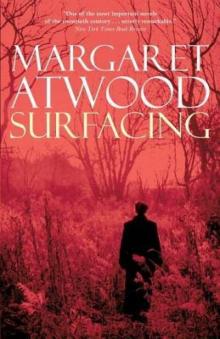 Surfacing
Surfacing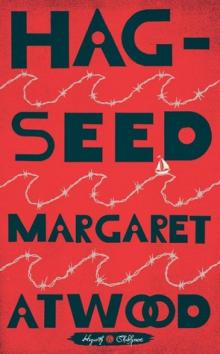 Hag-Seed
Hag-Seed Oryx and Crake
Oryx and Crake The Heart Goes Last
The Heart Goes Last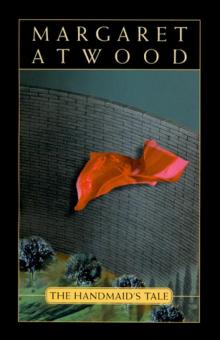 The Handmaid's Tale
The Handmaid's Tale Lady Oracle
Lady Oracle Good Bones and Simple Murders
Good Bones and Simple Murders The Robber Bride
The Robber Bride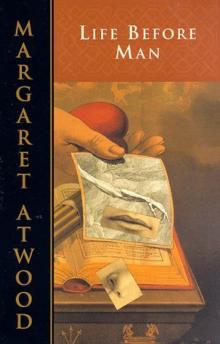 Life Before Man
Life Before Man Alias Grace
Alias Grace The Blind Assassin
The Blind Assassin Cat's Eye
Cat's Eye The Testaments
The Testaments The Penelopiad
The Penelopiad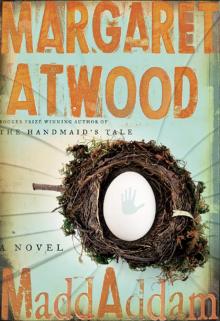 MaddAddam
MaddAddam Dancing Girls & Other Stories
Dancing Girls & Other Stories On Writers and Writing
On Writers and Writing Selected Poems II (1976-1986)
Selected Poems II (1976-1986) Wilderness Tips
Wilderness Tips Dearly
Dearly The Tent
The Tent Bluebeard's Egg
Bluebeard's Egg The Edible Woman
The Edible Woman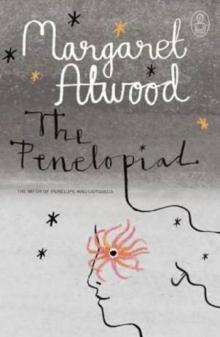 The Penelopiad: The Myth of Penelope and Odysseus
The Penelopiad: The Myth of Penelope and Odysseus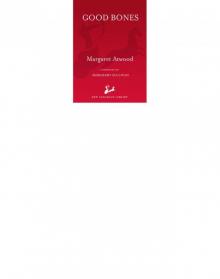 Good Bones
Good Bones I Dream of Zenia with the Bright Red Teeth
I Dream of Zenia with the Bright Red Teeth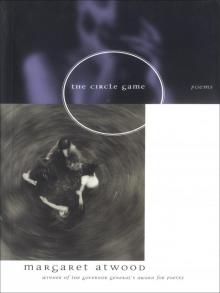 Circle Game
Circle Game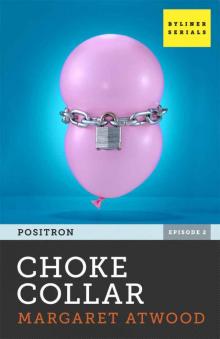 Choke Collar: Positron, Episode Two
Choke Collar: Positron, Episode Two Stone Mattress: Nine Tales
Stone Mattress: Nine Tales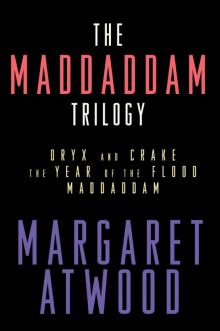 The MaddAddam Trilogy
The MaddAddam Trilogy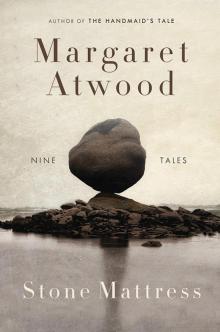 Stone Mattress
Stone Mattress Power Politics
Power Politics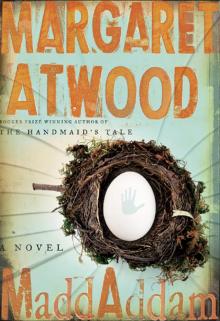 MaddAddam 03 - MaddAddam
MaddAddam 03 - MaddAddam I’m Starved for You (Kindle Single)
I’m Starved for You (Kindle Single) Murder in the Dark
Murder in the Dark In Other Worlds
In Other Worlds Dancing Girls
Dancing Girls Moral Disorder
Moral Disorder